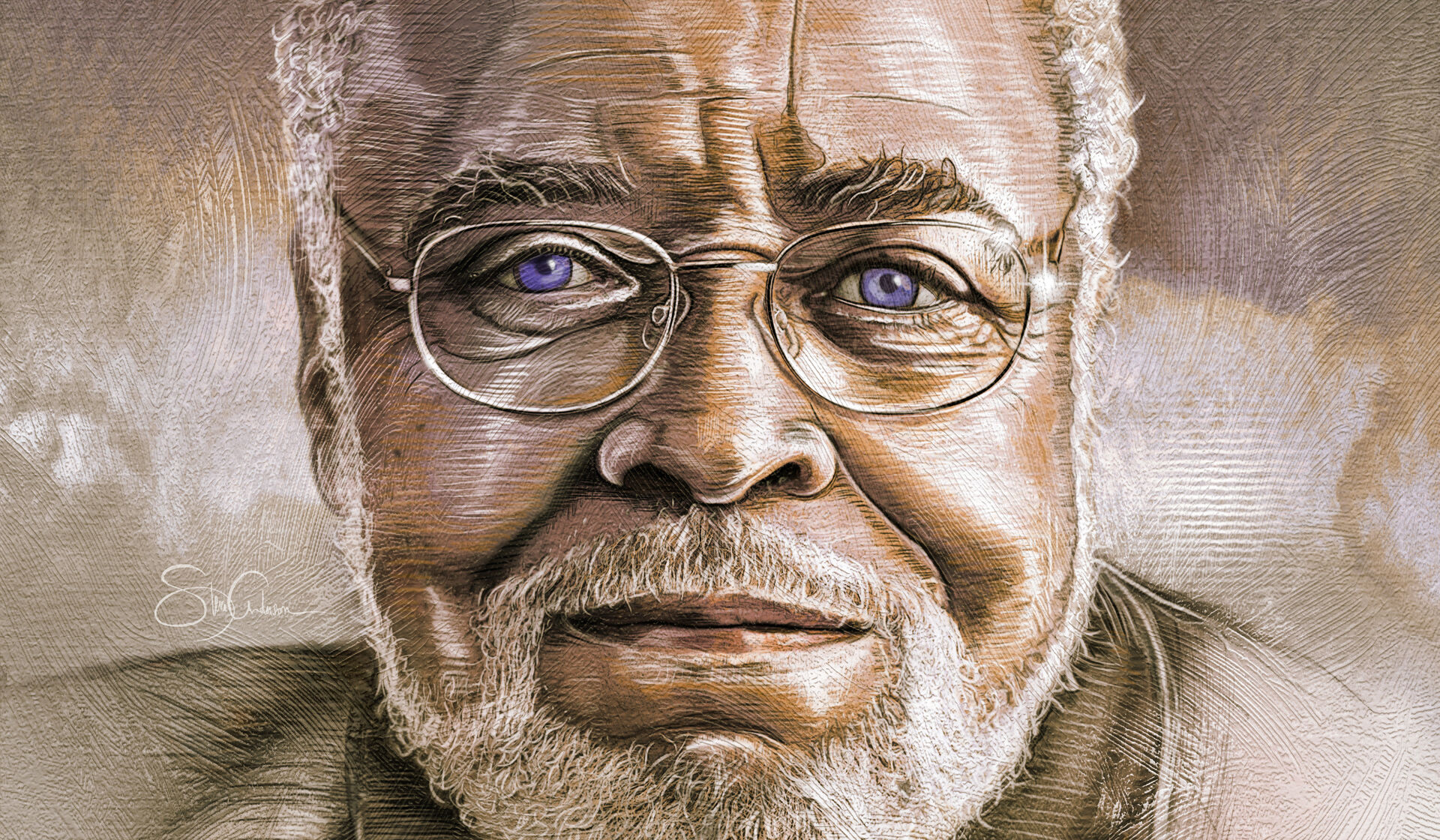During my freshman year at U-M, I liked to study late at night in the basement of Mary Markley Hall, specifically, the women’s restroom. It was deserted, and its anteroom provided a comfortable green vinyl couch, a wooden coffee table, and a lamp that cast a dim light. In quizzing myself aloud, my studies echoed off the tile walls and I felt as if I had absorbed the information twice. It was unconventional, but the practice had served me well on my first college test and I was therefore reluctant to change it.
One night, the janitor walked in. I knew his name, Roy Akers, without needing to read it on his gray uniform. At that moment, he simply wanted to clean what he thought would be an unoccupied women’s restroom. I was quick to apologize, embarrassed by our chance encounter. I quickly gathered up my notes and backed out of the restroom, stepping past his bucket and mop. If Roy said anything, I was gone too quickly to hear it.
I returned to the same restroom the next evening, but this time I arrived two hours earlier so I would be gone in time for Roy’s scheduled cleaning. As I settled down to study, before I had begun rehearsing aloud, Roy barged through the door. Apparently, he too was hoping that he would find the restroom empty if he cleaned at an earlier hour. We were both speechless; all we could do was laugh. Roy then cleaned and I stayed put on the sofa. He shook his head and looked down while he mopped the bathroom stalls, for all of about five minutes, and I simply waved as he left. I decided it was not much of an inconvenience for the benefit of my own study hall.
Looking back on it now, I am not sure I can precisely chronicle the evolution of our friendship. Roy and I continued to find each other in that women’s restroom three or four nights each week. When he first spoke, to ask my name, he had a pronounced stutter and a halting style of speech. His head hung low as he stammered, and his crystal blue eyes were just barely visible, looking out over the top of his glasses. Those glasses were usually slid down his nose, which was always wet with perspiration. Typically, a lit cigarette hung from his lips and he coughed uncontrollably. He looked old and weathered, as if he had a very hard life.
Eventually Roy asked, in his tongue-tied fashion, if he could listen while I studied out loud. So night after night, Roy propped open the door from the restroom to the adjacent hallway and mopped the hall as my voice echoed off the walls, rehearsing subject matters that I was certain were foreign to him. My studying was elevated to a noble endeavor, and I looked forward to these tutorials for Roy.
One Saturday during the second semester of my freshman year, I saw Roy eating breakfast at the Brown Jug, so I approached his table. It made me feel good to acknowledge him publicly, when others so readily ignored him. Although it was his day off, he was wearing his uniform, which even in the light of day, made his face look gray. Roy had a stack of typed papers in front of him and was holding a red pen—making corrections to the manuscript of a book that he had written and was soon to be published!
Roy was not degreed, but he was extraordinarily well educated. He was much brighter than I ever was. It turns out that he was a devotee of Thoreau, having eschewed wealth and materialism for a simple life. He lived in one room, with no phone and no television. He was self-taught in subjects to a depth unequaled by my undergraduate studies. The mixture of my arrogance and Roy’s humility initially prevented me from realizing this. He intentionally worked in a university setting because he enjoyed the exposure to a steady stream of young minds. In his position in the dorm, he befriended hundreds of students, many of whom returned to campus to visit with him.
I moved out of the dorm after two years and no longer studied aloud in the women’s restroom. Nevertheless, I remained friends with Roy for 12 years, until his death. During my time in Ann Arbor, I had dinner with him at least three times a month and continued to be amazed by him. The longer we talked, the less he stuttered. Over the years, I met numerous distinguished U-M alumnae who, like me, had met Roy in the dorm and maintained their friendship. We compared stories of our parents’ worried reactions when they first learned that their college coed was hanging out with the dorm janitor.
Roy taught me more about myself than any one person ever had. He made me realize how easy it can be to misjudge, how uncomfortable I was with his nonconformity, and how much I had to resist my desire to convert him to a more mainstream lifestyle. Those problems were all mine to own. I mistook his timidity for low self-esteem, his janitor’s job as a sign of his failure, his disinterest in materialism as his lack of ambition.
Until his death in 1984, he lived a purposeful life, on his own terms. Soon after Roy’s death, the Roy Akers Scholarship was established at Mary Markley Hall. A school administrator expressed astonishment that the students in the dorm would recognize a custodian with a memorial fund. Actually, it was Roy who was astonishing.
F.D. Fields, ’75, is married to a U-M alum, and they have one son.





